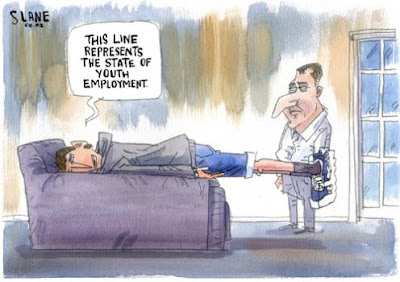John Key has this vein that runs along his forehead and every time someone talks about Capital Gains Tax it bulges. For some strange reason he is opposed to everyone paying their fair share, and it puzzles me. Virtually every other developed nation has a form of Capital Gains Tax, the name might vary and the amount people pay might fluctuate but as a tax it is fair and equitable.
So why is Mr Key so opposed to it and why is the National/ACT government currently jumping up and down, spreading myth and rumour saying it will be the end of the world? Well it is simple it is their rich friends that will be affected and not the average man/woman on the street.
Respected economist Gareth Morgan has acknowledged that a capital gains tax makes sense. As Morgan states: “Our redistribution regime is broken, it cannot be rectified with still more patches to a rotten core. We have a chronic misallocation of capital. Investment in capital here has very little to do with the taxable income generated, in some cases it is inversely proportional, people with the greatest means to pay tax are commonly asset-rich and deliberately income-poor. The time for a tax on capital is overdue.”
The first thing is that it is a matter of fairness. If I go out and work hard all year for the average fulltime wage, I get $48,000 a year gross and pay $8,400 tax. If I have a business and it makes $48,000 profit in a year, it pays $13,400 tax. If my only income is interest and dividends and I get $48,000 a year I pay $7,400. If I have some investment properties and their capital value appreciates by $48,000 in a year and I sell up, I pay no tax.
Now lets not forget that it is tax on the capital gain that you pay the tax on, not the full sale price of the property. Let’s look at a possible scenario. You buy a property for $200,000 you then do it up which costs you $20,000 you then sell it for $300,000. So to work out the capital gain you need to look at the investment of $220,000 and the $80,000 you make when you sell it. So it will be 15% of the $80,000 that is taxed. So $12,000 paid in tax and you make $68,000 after tax on your original investment.
Now lets compare it to someone who is a wage or salary earner on $80,000. That person would have paid just under $20,000 in tax or 20% of their income. So even with a Capital Gains Tax the property investor would still be better off than the wage earner paying PAYE by $8,000.
The absence of a Capital Gains Tax has created huge distortions in our economy. These distortions are hugely damaging to our economy. Because we have taxed income but not capital, investors are massively motivated to put their money into assets they hope will grow in value rather than those that produce income. Hence we have seen massive growth in unproductive property investment, which has made owning your own home unaffordable for a large number of young people starting out.
Just as important though is the negative impact that not having a capital gains tax has on the productive economy. Dairy farming is a good example. Most farmers take on massive debt to purchase land. Farmers work extremely hard, take minimal income out of the business and try and pay off the debt as quickly as possible. At the end many hope for the big tax-free payoff when they sell up.
Financial commentator Rod Oram states that the result of this has been that the dairy sector has quadrupled its debt to $43 billion in the decade before the current recession. This led to skyrocketing land prices that were uneconomic when compared with competing farms overseas. Good US pastoral land for example is one-quarter of the price here. This growth in New Zealand pastoral land prices added little to industry performance.
Essentially a number of farmers now farm for capital gains. The result is that ownership patterns are changing with young farmers gradually being priced out of the market with a growing number of farms now being foreign owned.
Capital Gains Tax is a great way of levelling the playing field. It gets the people at the top to pay their fair share. Labour is advancing a tax policy that most economists, the Reserve Bank, and the Government’s own Tax Working Group endorse. It is not novel New Zealand will just be coming into line with the rest of the world. Very few countries don't have Capital Gains Tax and most of them are tax havens such as, Belize, Cayman Islands and Isle of Man.
At 15% New Zealand will remain competitive against most other countries, over a period of time it will realise a regular income of a couple of billion dollars a year and this can be invested back into public services, removing GST from fruit and vegetables and finally developing a tax system that is fairer and will provide an income stream for the government that will enable it to significantly reduce foreign debt without selling our income generating assets.


No comments:
Post a Comment